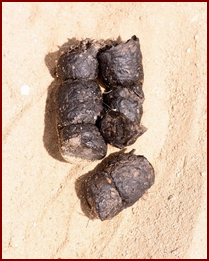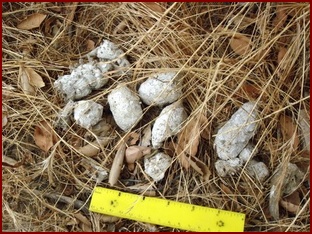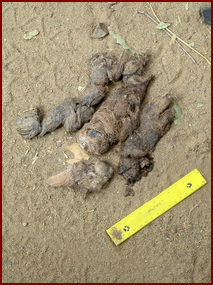COPYRIGHT 2009 DICK NEWELL
Feline scat is tubular and most often sectioned or divided at right angles. Bobcat scat may appear to contain large amounts of either rabbit or squirrel hair but it will not contain any obvious plant material. Felines may leave droppings in the same location on multiple occasions in what is referred to as a latrine. This is probably done as a way of marking territory.
Cougar scat is similar to that of the bobcat but it will be noticeably thicker. It may appear to be full of deer hair and might contain undigested parts of hooves.
Bobcats seem to digest their food extremely well and their dried scat will virtually turn to dust when crushed. This can often be used to separate it from that of the coyote scat which could be similar in size and shape. Its color may vary depending on the food consumed and the age of the scat but hot weather can change a dark colored scat to ashen white in only several days.











